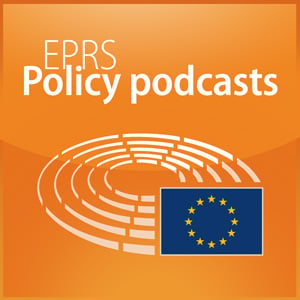Recognition of parenthood between EU countries
European Parliament - EPRS Policy podcasts
European Parliament Webmaster
4.8 • 13 Ratings
🗓️ 8 December 2023
⏱️ 7 minutes
🧾️ Download transcript
Summary
- Original publication on the EP Think Tank website
- Subscription to our RSS feed in case your have your own RSS reader
- Podcast available on Deezer, iTunes, TuneIn, Stitcher, YouTube
Source: © European Union - EP
Transcript
Click on a timestamp to play from that location
| 0:00.0 | Welcome to the European Parliamentary Research Service Podcasts. |
| 0:05.0 | The European Commission proposed a new regulation on the recognition of parenthood between EU countries |
| 0:11.0 | to ensure that the parenthood established in one member state is recognised in all others. |
| 0:17.0 | Want to know more? Stay with us. |
| 0:28.9 | An estimated 2 million children face problems when trying to have their parenthood recognised in another EU country. |
| 0:35.1 | For example, when moving to another member state or returning to their home country, now why is that? |
| 0:40.4 | That's because jurisdiction and rules on parenthood fall within the scope of member states' private international law, and these diverge on issues such as the |
| 0:45.8 | establishment of parenthood and on the recognition of parenthood established in another member state. |
| 0:51.8 | Under EU law, EU countries must recognize parenthood as established in another member state. Under EU law, EU countries must recognize parenthood as established in another member state |
| 0:58.2 | in the case of rights derived from EU law. |
| 1:00.9 | In particular, free movement, such as the right of entry and residence in another member state, |
| 1:06.6 | the right to equal treatment and the right to get travel documents for the child. |
| 1:10.7 | But EU law does not include the recognition of equal treatment and the right to get travel documents for the child. |
| 1:11.1 | But EU law does not include the recognition of parenthood as established in another member |
| 1:16.5 | state for the purposes of the rights derived from national law such as tax and social benefits. |
| 1:22.9 | And while these issues are particularly common among rainbow families. They are equally troublesome for different |
| 1:28.8 | sex couples, where the recognition of parenthood is not always certain. |
| 1:32.8 | This uncertainty can be detrimental to children, discourage families from moving across countries, |
| 1:38.3 | or push them to embark on long and costly legal proceedings. So, how does the EU want to make it easier for them? |
| 1:46.3 | In December 2022, as part of its equality package, the European Commission proposed a new |
| 1:52.7 | regulation to harmonise national rules on the recognition of parenthood. |
| 1:57.0 | With it, the Commission wants to harmonise rules on international jurisdiction, that is, |
... |
Please login to see the full transcript.
Disclaimer: The podcast and artwork embedded on this page are from European Parliament Webmaster, and are the property of its owner and not affiliated with or endorsed by Tapesearch.
Generated transcripts are the property of European Parliament Webmaster and are distributed freely under the Fair Use doctrine. Transcripts generated by Tapesearch are not guaranteed to be accurate.
Copyright © Tapesearch 2025.

